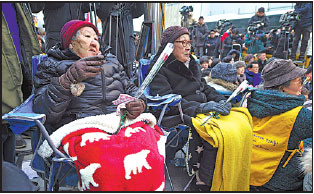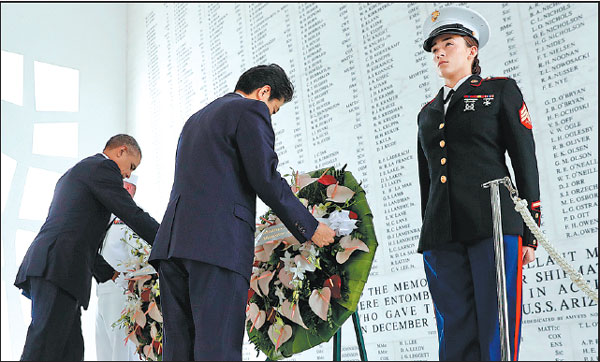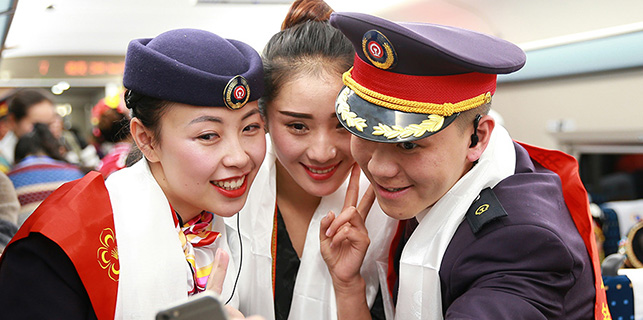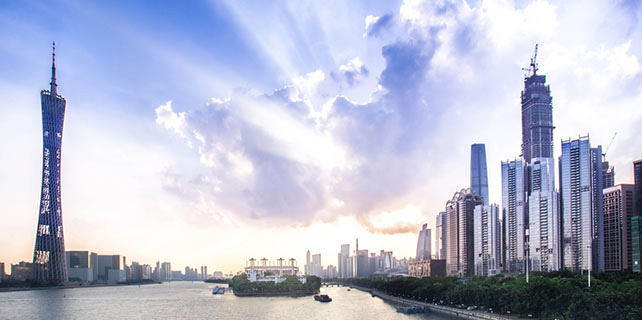Abe's Pearl Harbor visit masks 'hawkish' intent
Japanese prime minister only trying to strengthen US alliance to curb rise of China, analysts say
Japanese Prime Minister Shinzo Abe's visit to Pearl Harbor, criticized by China as lacking in sincerity, was quickly followed by one of his Cabinet ministers visiting a Tokyo war shrine on Wednesday.
According to analysts, Abe's visit to Pearl Harbor, the target of the 1941 Japanese surprise attack on Hawaii, had hawkish intentions at heart, not pursuing peace and reconciliation. The purpose, they said, was to broaden Japan's military capabilities and curb the rise of China by strengthening the alliance with the United States.
On Tuesday, Abe and US President Barack Obama laid wreaths at the USS Arizona Memorial.
Afterward, in a speech, Abe said that Japan would never again wage war. On Dec 7, 1941, the Japanese attack on Pearl Harbor killed more than 2,400 US citizens and drew the US into World War II.
Not long after Abe spoke, Masahiro Imamura, the minister in charge of reconstruction of northern Japan after the 2011 tsunami, offered prayers at the Yasukuni Shrine, which honors Japan's war dead, including 14 Class-A war criminals from World War II. Class-A convicts were found guilty of plotting and carrying out the war.
Chinese Foreign Ministry spokeswoman Hua Chunying said Japan should reflect upon its war crimes in a sincere manner rather than "make political shows repeatedly". She spoke at a regular news conference on Wednesday.
The reconciliation between Japan and victimized Asian countries, including China, must be based on Tokyo's sincere reflection on the suffering it caused, she said, adding that some Western media have used words like "shrewd" to describe Abe's visit.
|
Former South Korean "comfort women" Gil Won-ok (left) and Kim Bok-dong attend a protest on Wednesday calling for annulment of a settlement between Seoul and Tokyo on the issue.Jung Yeon-je/AFP |
In the Financial Times, writer Joji Sakurai called Abe's visit "a dovish act that masks a hawkish intent". The visit is "shrewd politics", through which Abe could defuse fears about militarism reawakening in Japan, Sakurai wrote.
"Mr. Abe's dream is to revise Japan's pacifist Constitution, drawn up by the US under postwar occupation, to allow the country to have a real army," he wrote.
On Tuesday, the Association for Inheriting and Propagating the Murayama Statement, a Japanese civic group, issued a statement urging Abe to visit Nanjing and other locations of Japanese atrocities before and during World War II.
"The Japanese Imperial Army killed far more civilians in the Nanjing Massacre, the germ warfare in Harbin and in some other places in Asia, and it is intolerable just to memorialize the US dead while ignoring the victims in Asian countries," said Takakage Fujita, director general of the association.
The group aims to uphold the 1995 statement issued by then Japanese prime minister Tomiichi Murayama apologizing for damage and suffering caused by Japan.
Nell Calloway, director of the Chennault Aviation and Military Museum in Monroe, Louisiana, said, "I feel the visit by Japanese Prime Minister Abe to Pearl Harbor ... was meaningless and he was nothing more than a tourist." Calloway is the granddaughter of the famed Flying Tigers' Lieutenant General Claire Lee Chennault, who commanded US pilots who fought the Japanese in China.
Zhang Jingquan, a professor of Japanese studies at Jilin University, said that Abe's visit was a way to strengthen the Japan-US alliance and jointly curb the rise of China.
On Wednesday, more protesters than usual showed up for the weekly demonstration in front of the Japanese embassy in Seoul. South Korean "comfort women" meet there to denounce being forced into sexual slavery during the war, Xinhua News Agency reported.
It marked the anniversary of what protesters called a "humiliating" agreement last year between South Korea and Japan meant to be a final settlement of the issue in exchange for $8.3 million for a foundation for the victims, Xinhua reported. Protesters called for annulment of the agreement, and the group also held a remembrance for seven of the women who died this year.
The Japanese military coerced as many as 200,000 women from the Asian countries into sexual slavery during the war, historians say.
Contact the writers at anbaijie@chinadaily.com.cn
|
US President Barack Obama and Japanese Prime Minister Shinzo Abe lay wreaths at the USS Arizona Memorial in Hawaii on Tuesday.Carolyn Kaster / AP |
(China Daily USA 12/29/2016 page1)


















